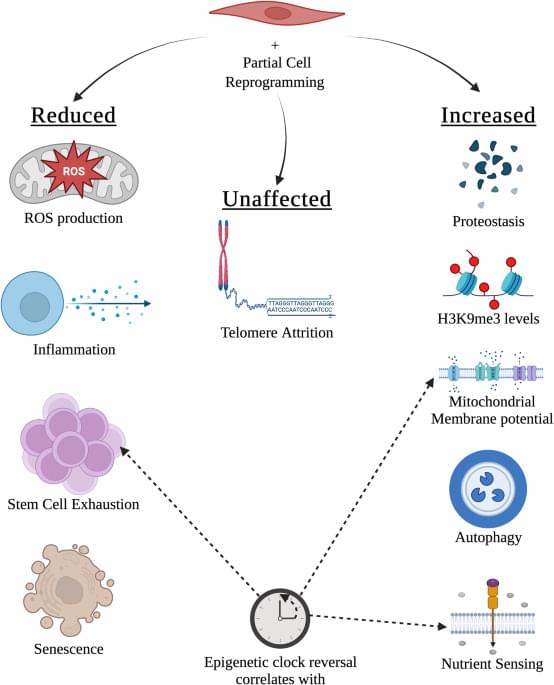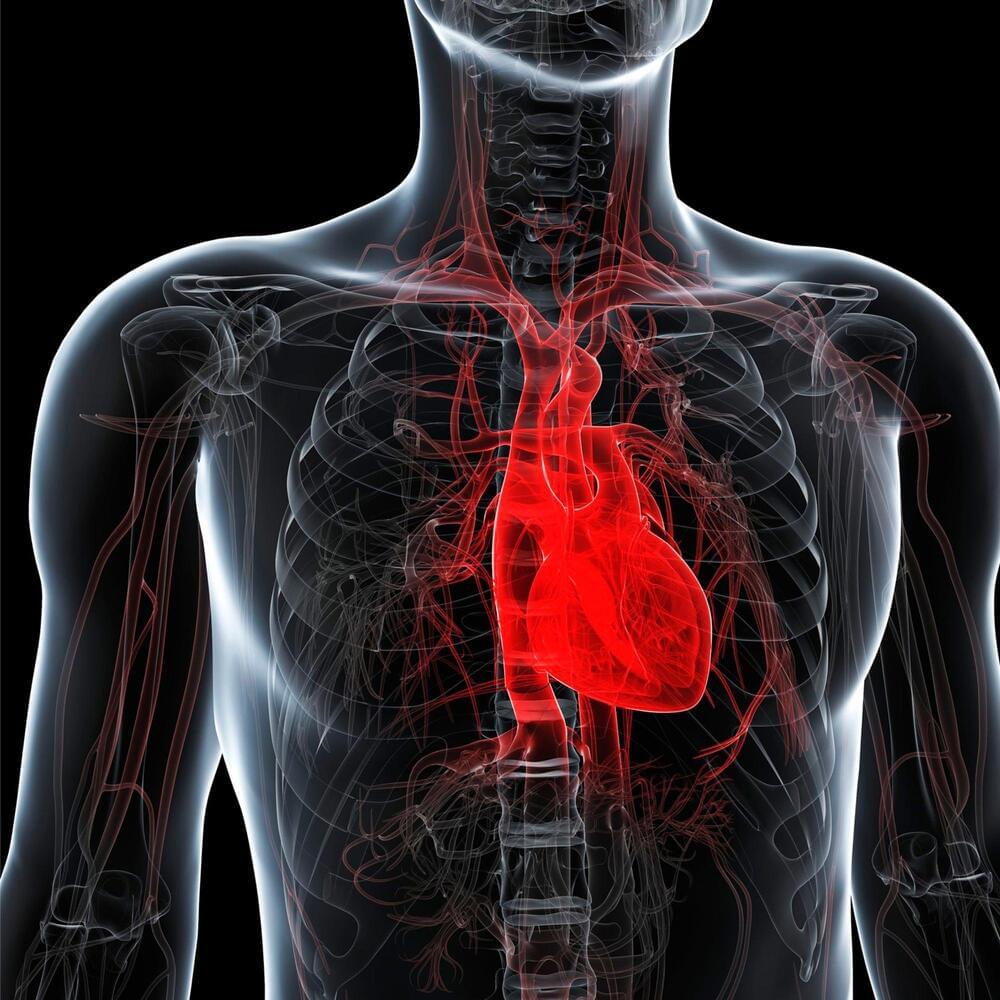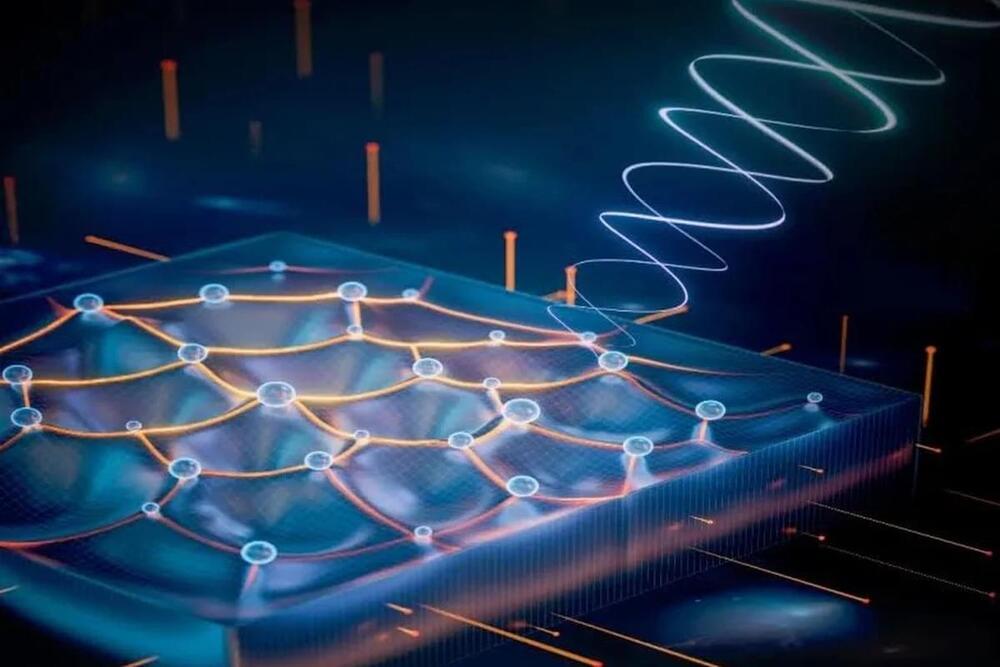The modded Cybertruck is bolstered with four huge snow tracks that make the stainless steel SUV look like a mean little tank.



Like a certain Pixar movie come to life, Nio — China’s answer to Tesla, basically — has unveiled in a video that its flagship electric car can literally shake snow and ice off itself in seconds, like a Siberian Husky who’s done running the Iditarod Race.
In a video posted to Weibo this past weekend and spotted by Business Insider, Nio showcased this cool ability in its upcoming, ultra-luxurious ET9, which is set to be delivered in early 2025.
The premium four-door electric vehicle, which will cost an eyewatering $112,000, is able to do this doggy snow shake due to its advanced suspension system, dubbed Sky Ride, which includes independent hydraulic pumps for each wheel.


face_with_colon_three year 2023 The ultimate goal is to use crispr to modify genetic programming for eternal life this an example of heart age reversal.
An anti-aging gene found in centenarians has been shown to reverse the heart’s biological age by 10 years. This groundbreaking discovery, published in the journal Cardiovascular Research and led by scientists from the University of Bristol and MultiMedica Group in Italy, offers a potential target for heart failure patients.
Individuals who carry healthy mutant genes, commonly found in populations known for exceptional longevity such as the “blue zones,” often live to 100 years or more and remain in good health. These carriers are also less susceptible to cardiovascular complications. Scientists funded by the British Heart Foundation believe the gene helps keep their hearts youthful by guarding against diseases related to aging, such as heart failure.
In this new study, researchers demonstrate that one of these healthy mutant genes, previously proved particularly frequent in centenarians, can protect cells collected from patients with heart failure requiring cardiac transplantation.

A new study from UC Berkeley confirms what EV fans already know: EV adoption does, in fact, make the air cleaner. Perhaps even more importantly, the study offers some quantifiable, granular data about how much electric vehicles are impacting emission rates in the here and now, not just in the foreseeable future.
Not that these numbers will blow you away, mind you, but still, it’s good news.
Researchers from the University of California, Berkeley, found that between 2018 and 2022, CO2 emission from all sources (industries, homes, traffic) across the San Francisco Bay Area dropped around 1.8% per year – a difference the researchers attribute to widespread EV adoption in the area. For vehicle emission rates, those numbers dropped 2.6% annually. EVs made up nearly 40% of new auto registrations in San Jose and 34% in San Francisco last year.

This experiment, which was published in the journal Nature, opens new avenues for the search for gravitons in laboratory settings.
The graviton, if it exists, is theorized to be massless and capable of traveling at the speed of light, embodying the force of gravity. Yet, its direct observation has eluded scientists until now, if the team’s research holds up. The recent findings stem from an excitation phenomenon discovered in 2019 when Du was a postdoctoral researcher at Columbia University. This phenomenon led theoretical physicists to speculate about the potential detection of gravitons.
The experiment’s success was the result of an international effort. High-quality semiconductor samples were prepared by researchers at Princeton University, while the experiment itself was conducted in a unique facility built over three years by Du and his team. This facility enabled the team to work at temperatures of minus 273.1 degrees Celsius and capture particle excitations as weak as 10 gigahertz, determining their spin.

When looking into the future, there are a number of interesting trends, such as quantum computing, which may save lots of energy, or space travel, which is here to stay and will become more affordable. But what I find interesting is the development of computation with biological cells, and the ability to build computing systems, and robots, not from hard metals but from soft biological matter — mostly cells.
Look around you in “nature”- almost everything you see, all plants and animals are built from a single type of structure, a biological cell. They are all alike. Sure, cells vary as they adapt to their environments, but a cellular organism has the same building plan as any other cell. There’s the cell membrane, there is a nucleus, there are organelles and cytoplasm. There is DNA, RNA, amino acids to build proteins and peptides, lipids and sugars. Put together in predictable ways.
We are learning to use these systems to build anything we want from them. We focus on this because our bodies are made from cells, and we want to remain healthy. That is a strong incentive to study these systems. The convergence will happen when we relegate metal-based computing to the sidelines and focus on biological computing as our main systems. These biological cell systems are, incidentally, quantum computing systems. So the trends I mention — here on earth will converge, and only space travel will require the opposite — the need to shield biological computing from conditions in space.
Diagram of Neuron and Microtubules Reference video:
I would like to dedicate this video on Hodgkin and Huxley model of Neurons. That basically explains Neurons as electric circuits with the organization and movement of positive and negative charge. The positive and negative is in the form of ion atoms. The neuron membrane acts as a boundary separating charge with ionic gates embedded in the cell membrane forming the potential for the build-up and movement of ion charge. This process can form signals along the neurons with the potential difference across the cell membrane forming what is called an action potential.
The big question is how can this process of electrical activity form consciousness?
To answer this question we have to look deeper into the process.
When we do this, we find that the movement or action of charged particles like ions emit photon ∆E=hf energy.
Therefore, this whole process can be based on an interpretation of Quantum Mechanics.
In the theory explained in these videos, Quantum Mechanics represents the physics of time ∆E ∆t ≥ h/2π as a physical process.
The uncertainty ∆×∆pᵪ≥h/4π of Quantum Mechanics is the same uncertainty we have with any future event.

Our everyday electronic devices, such as living room lights, washing machines, and televisions, operate thanks to electrical currents. Similarly, the functioning of computers is based on the manipulation of information by small charge carriers known as electrons. Spintronics, on the other hand, introduces a unique approach to this process.
Instead of the charge of electrons, the spintronic approach is to exploit their magnetic moment, in other words, their spin, to store and process information – aiming to make the computers of the future more compact, fast, and sustainable. One way of processing information based on this approach is to use the magnetic vortices called skyrmions or, alternatively, their still little understood and rarer cousins called ‘merons’. Both are collective topological structures formed of numerous individual spins. Merons have to date only been observed in natural antiferromagnets, where they are difficult to both analyze and manipulate.

Stephen Hawking and Jacob Bekenstein calculated the entropy of a black hole in the 1970s, but it took physicists until now to figure out the quantum effects that make the formula work.
By Leah Crane